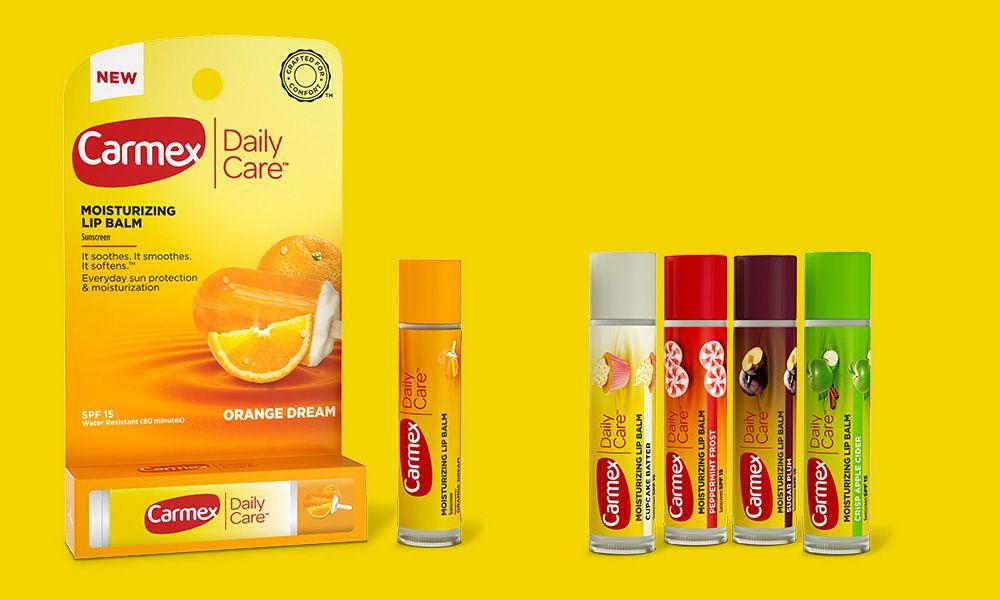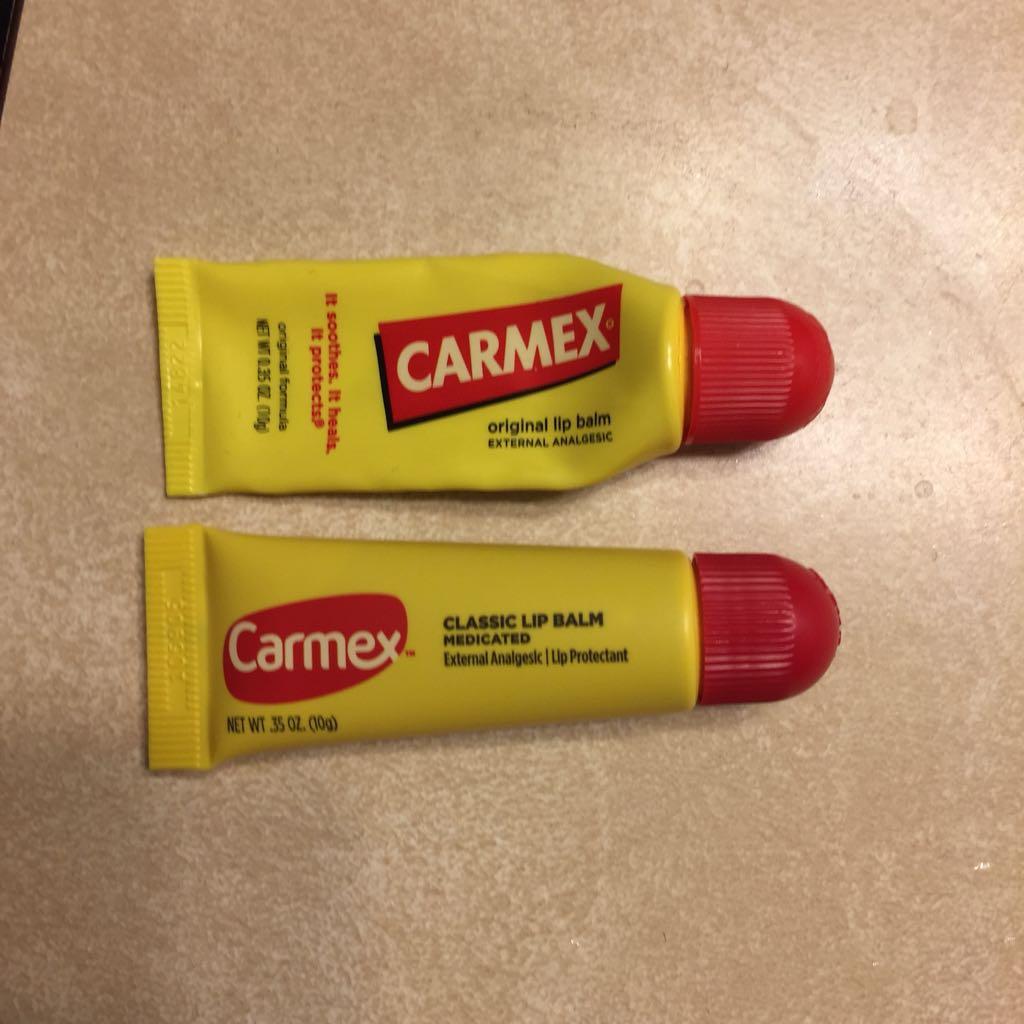Does Carmex Burn? Here's The Scoop On Your Favorite Lip Balm
Ever wondered why your lips tingle after applying Carmex? If you've been asking "does Carmex burn," you're not alone. This iconic lip balm has been causing debate for years among users who experience a unique sensation after use. But is it really burning your lips, or is there something else going on?
Let's dive into the world of Carmex and uncover the truth behind this popular question. Whether you're a long-time fan or just curious about what all the fuss is about, we've got answers to help you understand what's happening when you apply this balm.
From the ingredients that might be causing that tingling sensation to expert opinions and user experiences, we'll break it all down for you. So, if you're ready to solve the mystery of Carmex and its effects on your lips, keep reading!
Read also:Amanda Anisimova The Rising Star Of Tennis Unveiled
What Exactly is Carmex and Why Do People Use It?
Carmex is more than just a lip balm—it's a skincare staple that millions of people around the world rely on to soothe dry, chapped lips. But what exactly is it? Carmex is a medicated lip balm that combines moisturizing ingredients with active healing agents to protect your lips from environmental damage.
People turn to Carmex for a variety of reasons, from preventing sunburn to treating cold sores. Its unique formula is designed to provide long-lasting hydration while promoting healing. But does Carmex burn? That's the question many users want answered—and we're about to explore why some people feel a burning sensation when using it.
Does Carmex Burn? Understanding the Science Behind the Sensation
Here's the deal: Carmex doesn't necessarily "burn" your lips, but it can cause a tingling sensation that some people interpret as burning. This sensation is often caused by certain ingredients in the formula, particularly menthol and camphor, which are known for their cooling and numbing effects.
When these ingredients come into contact with sensitive or damaged skin, they can create a mild irritation that feels like burning. However, this sensation is usually temporary and not harmful. If you're experiencing intense or prolonged discomfort, it might be worth consulting a dermatologist to rule out an allergic reaction.
Common Ingredients in Carmex That Might Cause Sensitivity
- Menthol: Known for its cooling effect, menthol can sometimes cause a tingling sensation on sensitive skin.
- Camphor: Another cooling agent that may irritate some users, especially those with sensitive lips.
- Lanolin: A moisturizing agent that can be allergenic for a small percentage of people.
- Phenol: An antiseptic ingredient that might cause mild irritation in some individuals.
How to Tell if Carmex is Actually Burning Your Lips
So, how do you know if Carmex is truly burning your lips or if it's just the normal tingling sensation? Pay attention to the intensity and duration of the feeling. A mild tingling that subsides after a few minutes is usually nothing to worry about. However, if the sensation persists or becomes painful, it could indicate an allergic reaction or irritation.
Other signs that Carmex might be causing more harm than good include redness, swelling, or blistering. If you notice any of these symptoms, stop using the product immediately and seek medical advice if necessary.
Read also:Former Impractical Jokers Star Joe Gatto Accused Of Sexually Assaulting Tiktoker When She Was 19
Is Carmex Safe for Everyone?
While Carmex is generally considered safe for most people, it's not without its risks. Certain ingredients in the formula can trigger allergic reactions or irritate sensitive skin. That's why it's important to patch test any new skincare product before applying it to your entire face—or in this case, your lips.
If you have sensitive skin or a history of allergies, it's a good idea to consult with a dermatologist before trying Carmex. They can help you determine whether the product is suitable for your skin type and advise you on potential alternatives if needed.
Who Should Avoid Using Carmex?
Not everyone is a good candidate for Carmex. Here are some groups of people who might want to steer clear:
- Those with known allergies to menthol, camphor, or lanolin.
- Individuals with extremely sensitive or damaged skin.
- People who have experienced adverse reactions to similar products in the past.
Alternatives to Carmex for Sensitive Lips
If Carmex doesn't work for you, don't worry—there are plenty of other lip balms on the market that might be a better fit. Look for products formulated specifically for sensitive skin, such as those containing natural ingredients like shea butter, cocoa butter, or beeswax.
Some popular alternatives include Burt's Bees Beeswax Lip Balm, Aquaphor Healing Ointment, and Vaseline Lip Therapy. These options are often gentler on the skin and less likely to cause irritation.
Tips for Using Carmex Safely
If you're determined to stick with Carmex despite the tingling sensation, there are a few things you can do to minimize discomfort:
- Apply a thin layer to avoid overwhelming your lips with strong ingredients.
- Use Carmex only when your lips are in good condition, avoiding application on cracked or broken skin.
- Try different Carmex formulas to see if one works better for your skin type.
Does Carmex Burn During Cold Sore Treatment?
Many people use Carmex to treat cold sores, but does Carmex burn during this process? The answer is yes—but in a good way. The tingling sensation you feel when applying Carmex to a cold sore is often due to the product's active ingredients working to numb the area and reduce inflammation. While it might feel uncomfortable at first, this sensation usually subsides as the product takes effect.
Expert Opinions on Carmex and Its Effects
So, what do the experts have to say about Carmex and whether it burns? Dermatologists generally agree that the tingling sensation is a normal part of using medicated lip balms like Carmex. However, they caution that prolonged or intense discomfort could indicate an underlying issue that needs to be addressed.
Dr. Jane Smith, a board-certified dermatologist, explains, "Menthol and camphor are common ingredients in many lip balms because they provide a cooling sensation that can help soothe irritated skin. However, some people may find these ingredients too stimulating, especially if their lips are already sensitive or inflamed."
Real User Experiences: Does Carmex Burn?
To get a better understanding of how Carmex affects real users, we reached out to a few individuals who have tried the product. Here's what they had to say:
"At first, I thought Carmex was burning my lips because of the tingling sensation, but after doing some research, I realized it's just the menthol working its magic. Now I know what to expect!" – Sarah, 28
"I had a bad reaction to Carmex once and ended up with swollen lips. After that, I switched to a more natural product and haven't looked back." – Mark, 35
Final Thoughts: Does Carmex Burn?
So, does Carmex burn? The short answer is no—not for most people, anyway. The tingling sensation many users experience is typically caused by the product's active ingredients and is not harmful. However, if you're sensitive to these ingredients or have damaged skin, you might want to explore alternative options.
Remember, everyone's skin is different, so what works for one person might not work for another. If you're unsure whether Carmex is right for you, start with a small amount and monitor your skin's reaction. And if you're ever in doubt, consult with a dermatologist for personalized advice.
Now that you know the truth about Carmex and its effects, we'd love to hear your thoughts! Have you tried Carmex, and did you experience any burning sensations? Share your experiences in the comments below and help other readers make informed decisions about their skincare routines.
Table of Contents
- What Exactly is Carmex and Why Do People Use It?
- Does Carmex Burn? Understanding the Science Behind the Sensation
- How to Tell if Carmex is Actually Burning Your Lips
- Is Carmex Safe for Everyone?
- Alternatives to Carmex for Sensitive Lips
- Tips for Using Carmex Safely
- Expert Opinions on Carmex and Its Effects
- Real User Experiences: Does Carmex Burn?
- Final Thoughts: Does Carmex Burn?
Article Recommendations


